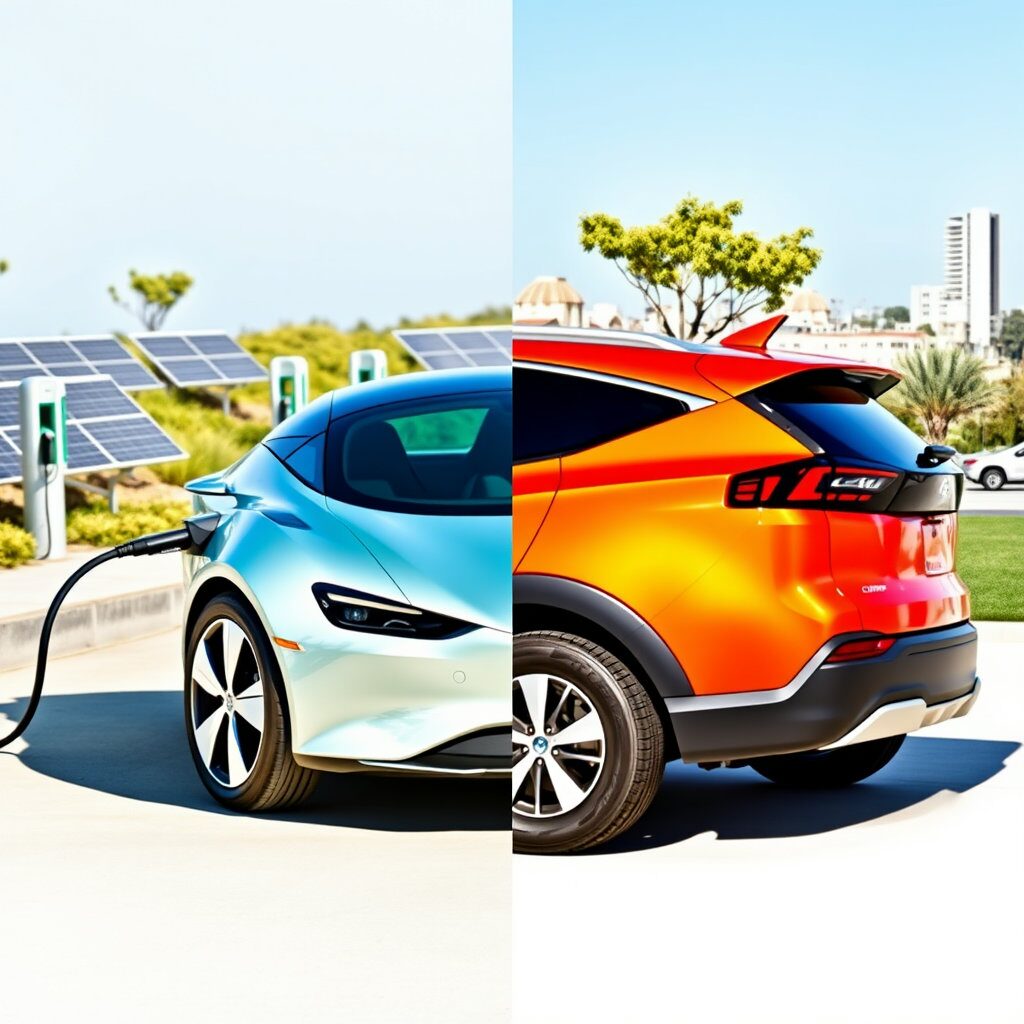The popularity of electric vehicles (EVs) and hybrid vehicles (HEVs) in the automobile market has been steadily increasing recently. Amid the trend of the automobile market shifting from internal combustion engines to eco-friendly vehicles, electric vehicles (EVs) and hybrid vehicles (HEVs) are the two options that receive the most attention. The combination of the government’s eco-friendly policies, fuel cost reduction, and technological advances has led consumers to think about eco-friendly vehicles instead of internal combustion engine vehicles.
So which car should I choose, electric or hybrid? Both models are appealing to environmentally conscious consumers, but when you’re actually considering a purchase, you’ll need to carefully compare the pros and cons, cost, convenience, and maintenance costs of each model.
1. Characteristics of Electric Vehicles (EVs)
Electric cars are powered by 100% batteries and electric motors. It does not use fossil fuels such as gasoline or diesel and charges the battery from an external power source. The structure is simple because there are no internal combustion engine parts, and there are no emissions at all.
Examples of typical electric vehicles: Tesla Model 3, Ioniq 5, Niro EV, and more.
Advantages
Weakness
Zero carbon emissions: completely eco-friendly, futuristic.
Lack of charging infrastructure: some areas, inconvenient when driving long distances.
Low maintenance/operating costs: electricity rates are around 20-30% compared to petrol.
Charging time: Fast charging also takes at least 30 minutes to an hour.
Noise/vibration low: comfortable ride, suitable for urban & residential areas.
Driving distance limit: Battery capacity limit, winter attenuation watch out.
Strong acceleration and advanced features: Immediate torque, OTA function due to the nature of electric motors.
High initial purchase cost: but can be offset by subsidies.
Various government support, such as tax cuts and exclusive parking.
Battery life, cost of replacement.
2. Features of Hybrid (HEV)
Hybrid cars are a combination of internal combustion engines (mainly gasoline engines) and electric motors. The battery mainly uses self-charging (rehabilitation braking, etc.) while driving, and external charging is possible for plug-in hybrid (PHEV).
Examples of typical hybrid vehicles: Hyundai Sonata HEV, Toyota Prius, Kia Niro HEV, etc.
Advantages
Weakness
High fuel economy: Best efficiency in the city with a combination of internal combustion engines and electric motors.
Price burden: If it is about 4 to 6 million won more expensive than the internal combustion engine of the same class.
No charging stress: Solved with a gas station.
Reduced efficiency and reduced fuel economy differences when driving long distances and high speeds.
Quiet and smooth ride, excellent initial acceleration responsiveness.
Battery life limit, replacement and management required.
Eco-friendly benefits (tax cuts, parking and toll discounts).
Battery efficiency and fuel efficiency drop sharply in winter and mid-season.
Reduce maintenance and maintenance costs (brake pads, etc.).
Not suitable for motor size, power limit, and high performance due to the structure.
3. What to consider when purchasing in real life
Vehicle Price: Electric vehicles and hybrids both have higher initial prices than internal combustion engines, but you must check whether government subsidies/tax benefits (up to millions of won) are applied.
Driving environment: Electric cars and hybrids are both advantageous if it’s mainly in the city center and commuting. Hybrid is more advantageous if you have a lot of local, long-distance, and high-speed driving.
Charging environment: Electric vehicle merit if self-charging is easy in low floors of apartments or houses. Hybrid if charging infrastructure is weak or traveling/business trips are frequent.
Car depreciation/balance: Electric cars tend to have greater residual value or depreciation than hybrid due to the emergence of new technologies and battery durability issues.
4. environmental impact
EV: Ultimately, “zero emissions” can be achieved, making it the most eco-friendly means of transportation when linked to the renewable energy mix.
Hybrid: Transitional nature requiring parallelism with existing road infrastructure and internal combustion engines. However, it is popular as a short-term option due to its relatively high purchasing/maintenance convenience.
5. Which car should I choose?
EV Recommendation: Environmental issues, close proximity and regular pattern driving in the city, home rechargeable, and those who want to utilize the latest features.
Hybrid recommendations: long-distance, high-speed driving, environment with insufficient charging infrastructure, fuel efficiency and fuel convenience, and low initial cost burden.
Both are classified as eco-friendly cars and can receive various government support, subsidies, and tax benefits, so please compare them carefully according to your actual driving pattern, living environment, and budget to make the best choice.
📌 Conclusion
Electric cars and hybrids are both eco-friendly means of transportation, but the choice depends on your lifestyle and your local infrastructure.
EVs are likely to be the center of future mobility, but hybrids will remain a stable transition option for the time being.
Therefore, it is wise to carefully examine your driving habits, charging environment, and vehicle maintenance costs before purchasing.

답글 남기기